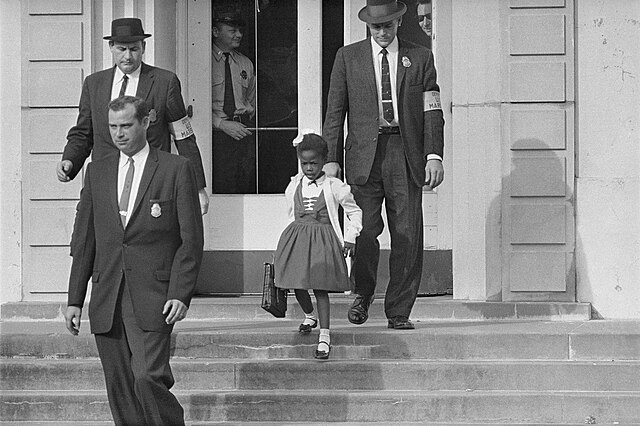In a significant legal development with potential nationwide implications, the U.S. Department of Justice this week ended a long-standing school desegregation order in Plaquemines Parish, Louisiana.
The move may signal president Donald Trump’s administration’s intent to dismantle similar court-enforced mandates established during the Civil Rights Movement, according to experts.
The Justice Department, under the leadership of Trump-appointed officials, described the 1966 order as a “historical wrong” and said its termination marks a return to local control and a refocusing on the country’s future.
Assistant Attorney General Harmeet Dhillon declared the end of the order as an example of the administration “getting America refocused on our bright future.”

The joint motion to dismiss the case was filed by the DOJ and Louisiana Attorney General Liz Murrill’s office, which stated that the nearly 60-year-old litigation had been inactive for decades, with no substantive court action since 1975. The judge presiding over the case died that same year, and according to court filings, the original record “appears to be lost to time.”
A Broader Legal Trend May Be Emerging
The decision is part of a broader internal effort by Trump-era DOJ officials to review and potentially terminate remaining desegregation orders still in force across the Southern United States.
Over 130 public school districts — primarily in Alabama, Mississippi, and Georgia — remain under active federal desegregation decrees, many of which require ongoing reporting, oversight, and remedies such as student transfers and disciplinary reviews aimed at reducing racial disparities.
Louisiana Attorney General Murrill has publicly called for the dismissal of additional orders, stating her goal is to help schools “put the past in the past.” Plaquemines Parish Superintendent Shelley Ritz confirmed that her district, which serves fewer than 4,000 students, continued to submit annual compliance data to the Justice Department as recently as 2023.
“It was hours of compiling the data,” Ritz said. “It was an unnecessary burden.”
Pushback from Civil Rights Advocates
Despite the government’s framing of the dismissal as administrative streamlining, legal scholars and civil rights organizations have expressed alarm. Critics argue that the move could accelerate resegregation trends and further erode hard-fought educational equity gains.
Johnathan Smith, former DOJ Civil Rights Division official and current general counsel at the National Center for Youth Law, stated, “Most of these districts are now more segregated today than they were in 1954. Ending the orders doesn’t mean the problems are fixed — it probably means the opposite.”
Legal scholars also warn that dissolving these decrees could weaken future civil rights enforcement. Tulane University Law Professor Robert Westley called the move a sign that “the United States government doesn’t really care anymore about dealing with problems of racial discrimination in schools.”
Ongoing Legal Relevance of Consent Decrees
Although many desegregation orders have become dormant, they remain potent legal tools. In 2020, the NAACP Legal Defense and Educational Fund invoked a consent decree in Alabama to reinstate school meals suspended during the COVID-19 pandemic. More recently, the group challenged environmental conditions near a predominantly Black elementary school in Louisiana, prompting its closure under a decades-old decree.
Civil rights groups and legal scholars expect fierce courtroom battles if the DOJ seeks to vacate other active decrees.
Raymond Pierce, president and CEO of the Southern Education Foundation, cautioned that dismissing these cases without proper review could “represent a disregard for America’s need to have an educated workforce” and “a disregard for the rule of law.”
Legal and Policy Implications Moving Forward
The end of the Plaquemines Parish case could catalyze additional legal filings from state attorneys general seeking to terminate other federal desegregation mandates. However, researchers such as Halley Potter of The Century Foundation warn that empirical data shows school districts often resegregate quickly once orders are lifted — undermining both educational outcomes and constitutional equity guarantees.
Whether the DOJ’s latest action will prompt similar dismissals or draw legal resistance in court remains to be seen. But the precedent set in Louisiana may reshape the federal role in school desegregation enforcement for years to come.

